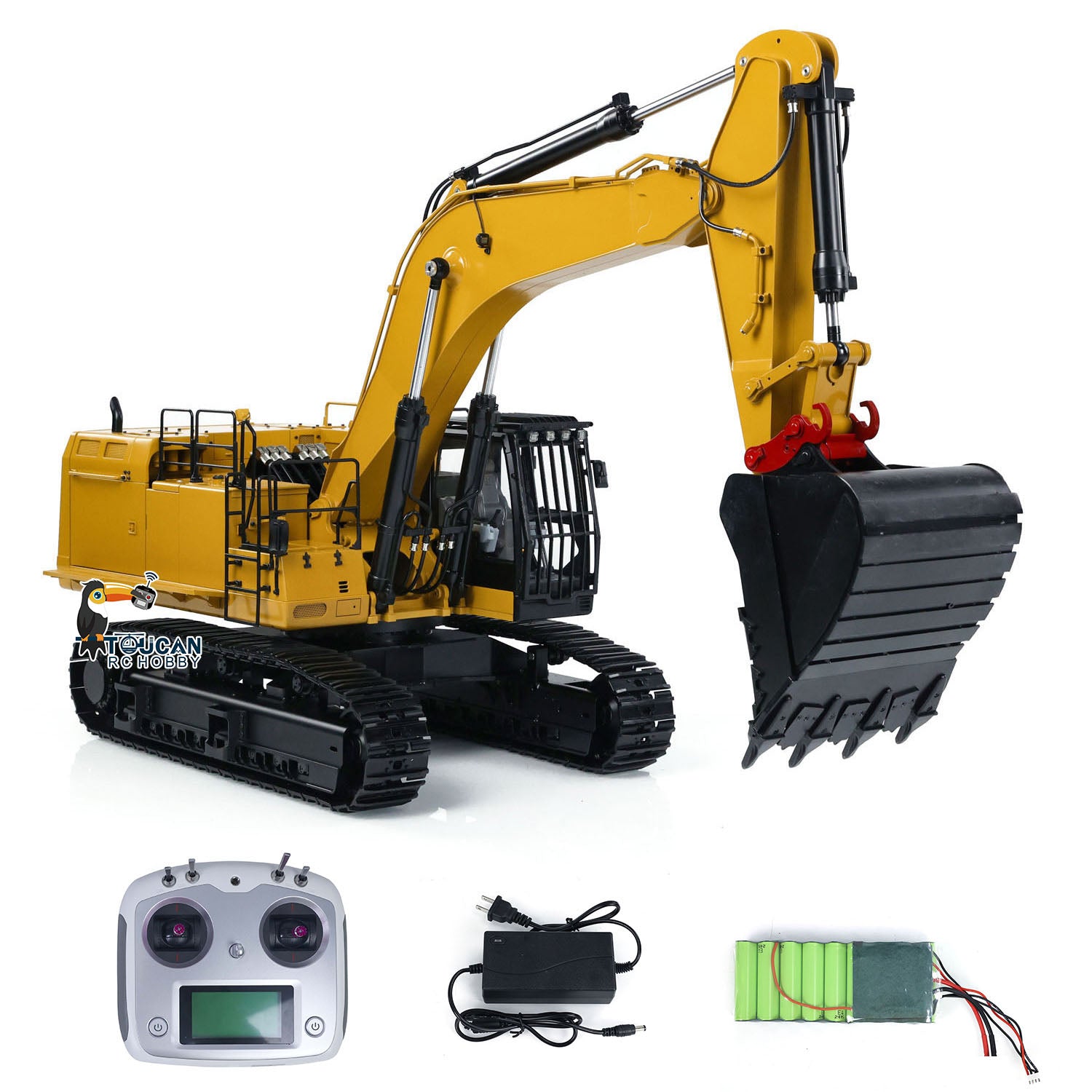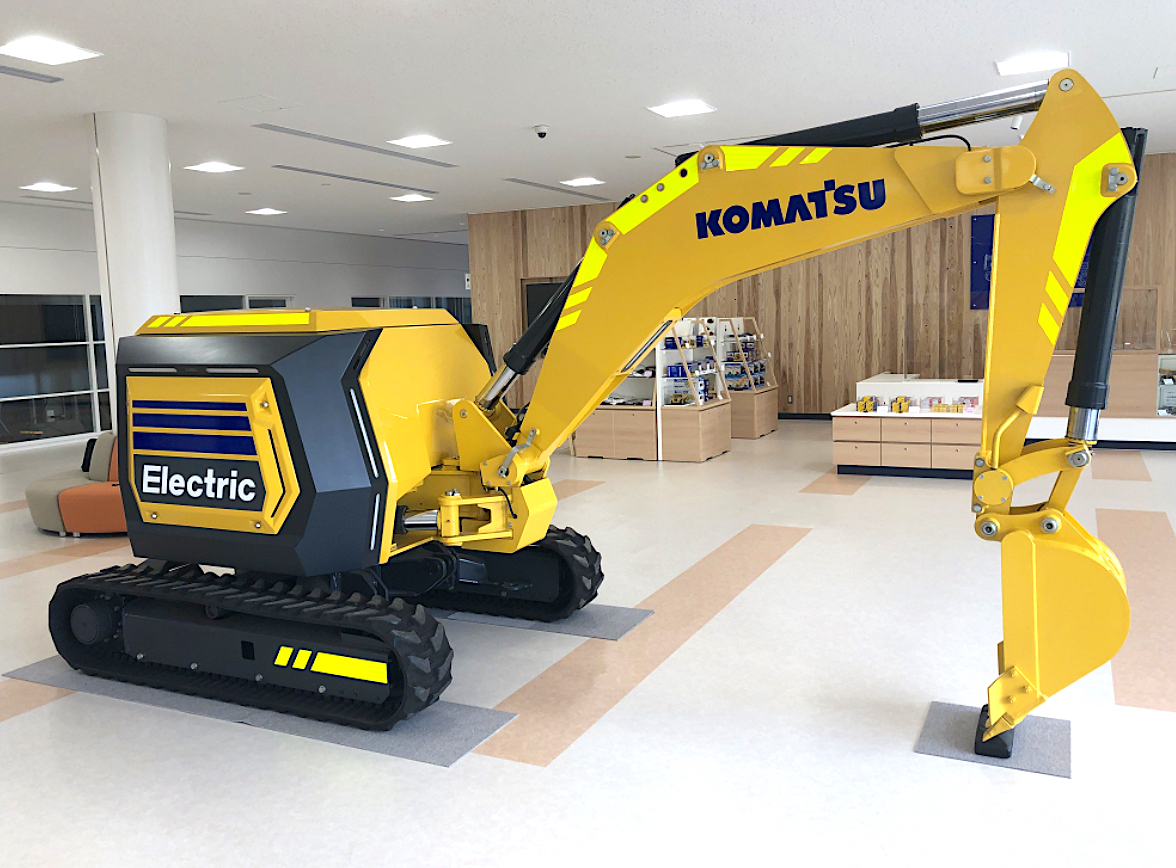Discover the Value of Excavator in Modern Building And Construction Projects
Excavators are important devices in contemporary construction jobs. Their adaptability permits them to do a vast array of jobs, from digging and grading to demolition and website preparation. Advanced features, such as hydraulic add-ons and general practitioners, boost their abilities and performance on work websites. As the industry advances, the value of excavators expands also more. Recognizing their duty can disclose understandings right into the future of building and construction practices. What lies ahead for these devices?
The Adaptability of Excavators in Numerous Projects
Excavators are usually linked with large-scale building projects, their flexibility allows them to be made use of in a vast variety of applications, from household landscaping to utility upkeep. In city setups, excavators can navigate tight areas to dig foundations for homes or set up drainage systems. Their capability to carry out fragile jobs makes them optimal for landscape design projects, where they can dig deep into for fish ponds or plant trees. In enhancement, excavators play a crucial role in energy upkeep, effectively digging trenches for pipes or cords without interfering with bordering locations. In farming applications, they assist in land cleaning and soil preparation. Their flexibility allows them to be equipped with numerous attachments, enhancing their capability across different jobs. This diverse nature of excavators not just improves numerous construction procedures however also shows their essential duty in contemporary infrastructure development and upkeep.
Key Features and Sorts Of Excavators
The conversation on essential functions and sorts of excavators highlights the essential characteristics that make these equipments very useful in building. Various excavator types, each made for specific tasks, demonstrate their convenience and performance throughout different applications. rc excavator. Understanding these categories and features is important for maximizing their usage in modern building projects
Excavator Enters Introduction
Excavators play a pivotal role in modern-day building and construction, using convenience and effectiveness across numerous jobs. These hefty equipment systems been available in several types, each customized for specific applications. The most common types include crawler excavators, understood for their stability on uneven terrain, and wheeled excavators, which supply higher wheelchair on paved surface areas. Small excavators are favored for limited rooms and small jobs, while long-reach excavators are designed for deep excavating. Additionally, there are specialized excavators, such as hydraulic excavators, which enhance power and precision. Each kind includes unique capabilities, making them vital for tasks varying from excavating and grading to demolition and product handling. Recognizing these variants allows building and construction professionals to pick the right excavator for their project requires.
Key Features Explained
Understanding the crucial functions of excavators boosts their effective application in construction tasks. Excavators are identified by their effective hydraulic systems, which offer the necessary pressure for digging, lifting, and moving products. Their articulated arms enable a large range of motion, assisting in specific operations in constrained rooms. Furthermore, the range of accessories, such as buckets, grapples, and augers, increases their adaptability to satisfy various project demands. The size and weight of excavators likewise add to their stability and maneuverability on different terrains. Additionally, improvements in technology have actually caused the assimilation of GPS and automation, enhancing precision and performance in excavation jobs. These functions jointly position excavators as indispensable devices in modern building and construction.
Applications in Construction
Changing building and construction sites, excavators play a critical function across numerous applications, ranging from property building jobs to large-scale facilities growths. These versatile makers are equipped for jobs such as excavating structures, trenching for energies, and site grading. Various kinds of excavators, including crawler, wheeled, and mini excavators, give specific benefits customized to the project demands. Crawler excavators master harsh terrains, while rolled excavators offer mobility on paved surfaces. Small excavators are excellent for constrained areas, making them prominent in city setups. The efficiency and power of excavators considerably speed up construction processes, guaranteeing timely job conclusion. Their adaptability even more improves their value, permitting construction teams to tackle a varied selection of difficulties properly.
Enhancing Performance and Performance on Job Sites
Taking full advantage of effectiveness and efficiency on work websites is an important goal in modern building and construction. Excavators play a crucial duty in accomplishing this goal by improving various jobs. Their ability to carry out several functions-- such as digging, grading, and lifting-- minimizes the need for added equipment, therefore saving time and resources.Moreover, excavators enhance operations by enabling faster conclusion of projects. With innovative attributes like hydraulic accessories and GPS technology, they can carry out specific operations that reduce errors and remodel. This accuracy not only improves the quality of work but additionally optimizes product use, adding to cost savings.The flexibility of excavators allows them to adapt to various site conditions, making sure that tasks proceed smoothly no matter difficulties. By incorporating excavators into building and construction procedures, groups can substantially enhance their total performance, resulting in prompt task conclusion and enhanced success.
Safety And Security Benefits of Utilizing Excavators
Excavators greatly enhance security on building and construction sites through boosted driver presence and decreased hand-operated labor dangers. By offering operators with a clear sight of their environments, excavators aid to avoid mishaps and injuries. In addition, the equipment decreases the need for employees to involve in dangerous hand-operated tasks, additionally advertising a more secure work environment.
Boosted Driver Presence
Building and construction websites can be chaotic and filled with potential hazards, enhanced driver presence plays a crucial duty in making certain security when making use of excavators. Modern excavators are made with large, unblocked home windows and purposefully positioned mirrors, enabling operators to keep a clear view of their surroundings (rc excavator). This improved presence is critical for detecting pedestrians, various other equipment, and numerous obstacles, considerably reducing the threat of mishaps. Furthermore, lots of excavators integrate advanced technology, such as sensing units and cams, to supply operators with added perspectives, better improving recognition. The capacity to see more plainly not only help in efficient procedure but additionally cultivates a much safer workplace, making it simpler for drivers to browse complex building sites without jeopardizing security criteria
Lowered Manual Work Threats
When manual work is reduced with making use of excavators, various safety advantages arise, considerably enhancing the health of building workers. Excavators minimize the physical stress related to heavy lifting and repetitive tasks, properly reducing the threat of musculoskeletal injuries. By automating procedures such as excavating, grading, and moving products, they enable employees to keep a safer range from potential threats. Furthermore, excavators are equipped with sophisticated security functions, such as rollover security systems and improved operator ergonomics, which additionally guard employees on website. The outcome is a substantial decrease in office mishaps and injuries, resulting in boosted performance and spirits amongst construction teams. Eventually, the adoption of excavators adds to a much safer and a lot more reliable construction environment.
Excavators in Earthmoving and Website Prep Work
In contemporary construction, a significant part of earthmoving and site preparation tasks relies on the efficiency and versatility of excavators. These machines are developed to deal with different dirt kinds and surface, making them vital for straight from the source grading, digging, and trenching tasks. Their hydraulic arms can check out here be outfitted with various add-ons, such as containers and augers, permitting drivers to tailor their strategy based on details job requirements.Excavators stand out at relocating huge volumes of earth rapidly and successfully, which speeds up the total building and construction timeline. They can browse limited spaces and testing websites where traditional tools might have a hard time, boosting performance. Additionally, the accuracy of excavators guarantees that website preparation follows strict requirements, reducing the threat of errors that can result in expensive rework.
The Duty of Excavators in Demolition Tasks
Excavators play a necessary role in demolition jobs, as they possess the power and dexterity needed to take down structures effectively. Equipped with various attachments such as hydraulic breakers, shears, and grapples, these makers can adjust to different demolition needs, whether for tiny structures or big commercial sites. Their adaptability enables operators to take on complicated jobs while maintaining security and precision.In addition to their demolition abilities, excavators help with particles removal, making certain that job sites remain organized and risk-free. By breaking down structures into convenient items, they enable for structured clearing and recycling of materials, straightening with modern sustainability efforts.Moreover, excavators can access tight rooms and navigate uneven terrain, making them essential in urban demolition jobs. In general, their robust layout and multifunctionality make excavators a critical property in the demolition stage of building and construction, contributing considerably to task timelines and performance.


Future Trends in Excavator Technology and Use
As the building market progresses, innovations in excavator modern technology are positioned to transform their use and performance substantially. One substantial pattern is the assimilation of automation and synthetic intelligence, permitting excavators to run with minimal human treatment. This shift will certainly boost precision in jobs such as grading and trenching, minimizing human error and enhancing productivity.Additionally, the surge of hybrid and electrical excavators is forming an extra sustainable building Resources environment, lowering carbon discharges and gas prices. Boosted telematics systems are likewise emerging, allowing real-time tracking of device efficiency and upkeep requirements, which can result in much better operational performance and longer devices lifespan.Moreover, innovations in add-on modern technology are expanding the adaptability of excavators, permitting them to do a more comprehensive variety of jobs. The mix of these fads shows a future where excavators are smarter, greener, and much more adaptable, inevitably improving building and construction task dynamics.
Frequently Asked Questions
Just How Do Excavators Contrast to Other Building Equipment?
Excavators, characterized by their convenience and power, stand out in digging and earthmoving contrasted to other machinery. Their capability to execute various tasks, consisting of training and demolition, makes them important in building and construction jobs, enhancing total performance.

What Is the Ordinary Life Expectancy of an Excavator?
The ordinary life expectancy of an excavator generally ranges from 7,000 to 10,000 operating hours, depending on maintenance, usage problems, and design. Proper treatment can prolong this life-span, ensuring peak performance throughout its functional years.
How Are Excavators Preserved for Ideal Efficiency?
Excavators need normal upkeep for peak performance, consisting of regular examinations, liquid checks, filter replacements, and prompt repairs. Executing a preventive upkeep timetable aids lengthen their life-span and warranties reliable procedure in various building settings.
What Are the Costs Associated With Leasing vs. Getting an Excavator?
The expenses linked with renting versus getting an excavator vary significantly. Leasing offers reduced upfront costs but can gather over time, while acquiring requires a significant initial financial investment, however supplies long-term cost savings and possession possession advantages.
What Training Is Needed to Run an Excavator?
Running an excavator requires specialized training, usually including safety and security methods, machine operation techniques, and ecological recognition. Accreditation programs typically mandate useful experience, enabling drivers to deal with various jobs efficiently while ensuring conformity with industry laws. The most typical kinds include spider excavators, recognized for their stability on irregular surface, and rolled excavators, which offer greater flexibility on paved surface areas. Small excavators are favored for small-scale projects and limited spaces, while long-reach excavators are developed for deep digging. Additionally, there are specific excavators, such as hydraulic excavators, which enhance power and accuracy. Different kinds of excavators, including spider, rolled, and mini excavators, supply certain advantages customized to the job demands. Spider excavators succeed in rough terrains, while rolled excavators offer wheelchair on smooth surface areas.